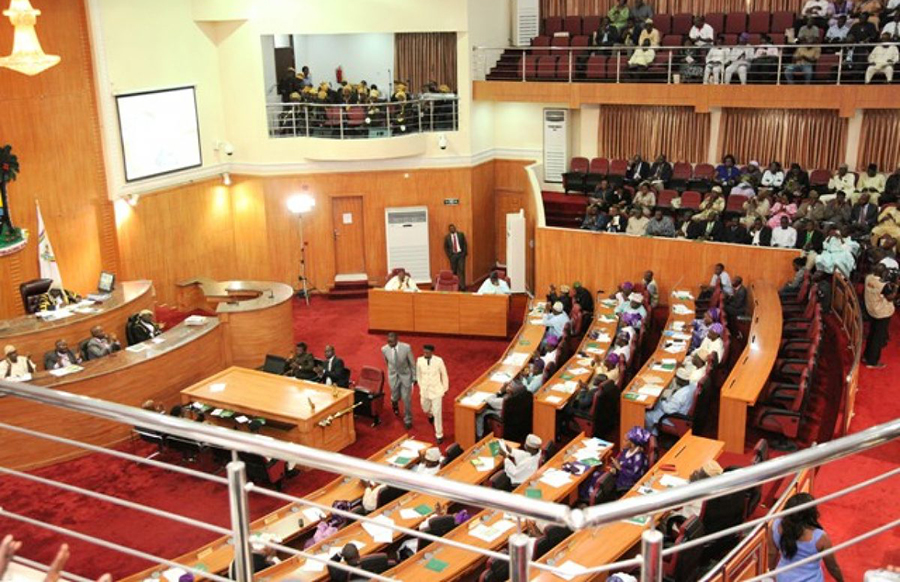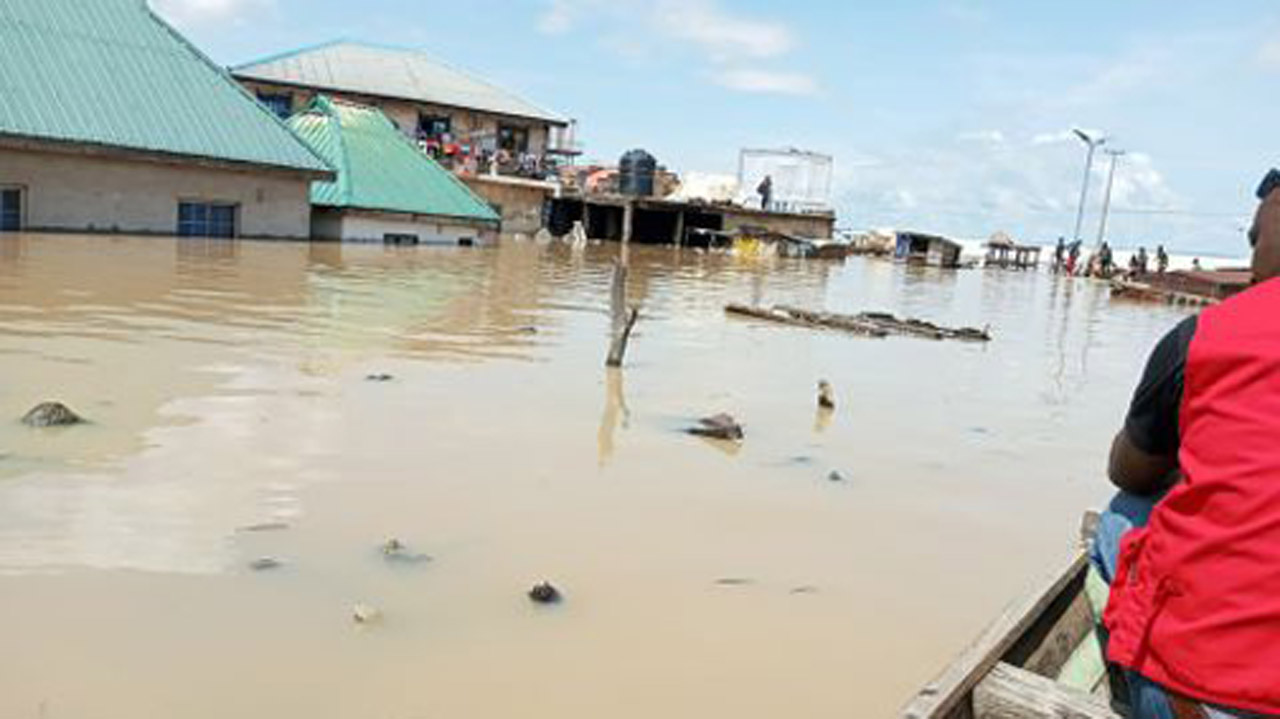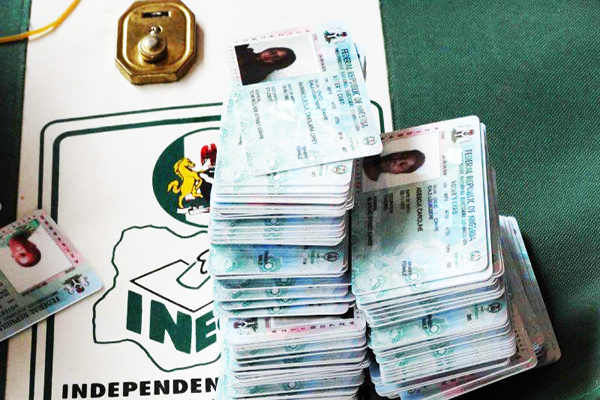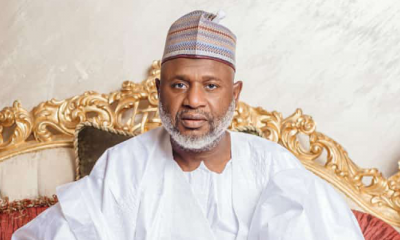COVER
Plateau Assembly Commends FG Delegations to State

From Jude Dangwam, Jos
The Plateau State House of Assembly has commended the Federal Government for sending delegations at different levels to facilitate peace in Plateau following the recent serial attacks that claimed many lives and property worth millions of naira destroyed in the state.
They stressed that the presence of the Secretary to the Government of Nigeria, Boss Mustapha (SGF), Rev.
Dr. Samson Ayokunle (SUPO Ayokunle) CAN President, Gen. Lucky Iraboh – Chief of Defence Staff, the Sultan of Sokoto and President Supreme Council for Islamic in Nigeria, His Eminent Mohammadu Sa’ad Abubakar, has gone a long way in reinforcing the confidence of citizens of the state on Government.The State Assembly states this yesterday through its spokesperson, Hon. Dasun Philip Peter, the Chairman, House Committee on Information at a Media briefing in Josl
They also applauded Governor Simon Lalong for implementing five out of the six resolutions earlier issued to him by the 9th Assembly with a two weeks ultimatum for actions in the interest of citizens of the state.
According to Hon. Dasun “You may recall that the House of Assembly gave two weeks for the Governor to act on its resolutions on Security to address the insecurity challenges affecting the State at that particular time.
“We felt it is important as an organized institution; we have a duty to communicate back to the people of Plateau State the outcome of the resolution and of the present position of the Assembly.
“We gave a six-item resolution to the Executive Governor to act on within two weeks. He has so far been able to address five of the items remaining one that is ongoing,” he explained.
The Chairman House Committee on Information said the six resolutions were for the Governor to “Visit Yelwa Zangam Community in Jos North and pay the hospital bills of those affected in the conflict.
“Visit to extend relief materials to the Rukuba Irigwe Community, Riyom, Bokkos and Mangu, and to address the people of Plateau on the Security situation and show to people of Plateau state a renewed commitment.
“To improve the security situation in the State by engaging the advance security operatives. To also suspend the planned Adhoc teachers recruitment and to replace it with the Vigilante, and Local hunters as well as implement the Anti Land Grabbing Law to enable those occupying illegal lands on the Plateau to vacate such lands and native owners to take back their lands.”
The Assembly said it will not condone any action that is capable of threatening the peace and progress of the state, as they pledged to continued to stand with the people of the state at all time.
“We as an institution will not condone any act of insecurity and killings in the Plateau henceforth. As an Arm of Government with the People at heart, we are still putting on record that we stand with the people of Plateau and we give assurances of commitment to the course of Plateau and its heritage.
“Worthy of note, is the fact that the House is still resolute in support of the Leadership of Rt. Hon. Abok Nuhu Ayuba, our firm Speaker and our Loyalty to him is unshakeable,” he firmly stated.
COVER
Over Three Million Nigerians Displaced by Flood, Says FG

By Ubong Ukpong, Abuja
The Federal government on Monday Expressed concerns that over Three Million Nigerians were being currently displaced by flood.Humanitarian Affairs and Poverty Alleviation Minister of State, Tanko Sununu, who conveyed these concerns said Nigeria was presently undergoing a worse humanitarian crisis.
This was also as the minister warned that millions of citizens risked sliding deeper into hunger and malnutrition as global aid funding was dwindling. The Minister, who spoke during the inauguration of the House of Representatives Ad-hoc Committee on Flood Management and Response, said that the combined effects of natural disasters, insecurity, and shrinking donor support have created a “critical humanitarian challenge” for the country.“Globally, humanitarian funding is shrinking, and Nigeria is not exempt,” the minister stated.“Just a few days ago, the World Food Programme suspended some of its activities, which had supported more than 1.2 million Nigerians with emergency transfers in the North-East. This leaves over 300,000 children at risk of malnutrition, while more than 200,000 are already receiving treatment.”According to United Nations estimates cited by the minister, over 24.8 million Nigerians have suffered some form of hunger, while more than 3 million people remain internally displaced as a result of flooding, insecurity, and other natural disasters.Poverty, the minister stressed, remains unevenly spread across the country, with the North accounting for about 65 percent of Nigeria’s poor population. “Out of this 65 percent, more than 70 percent are smallholder farmers. Sadly, most of them have lost their farmlands and livelihoods to floods and droughts,” he said.”In response to the crisis, the Federal Government is strengthening interventions through the National Social Investment Programme (NSIP). The minister disclosed that under the Government Enterprise and Empowerment Programme (GEEP), smallholder farmers have received interest-free loans of ₦300,000 each to help them recover from losses.He also revealed that more than 5.9 million households—approximately 25 million Nigerians—have benefited from N419 billion in conditional cash transfers. The funds, he explained, are meant to cushion the impact of economic hardship and sustain vulnerable families.“These efforts are part of President Bola Tinubu’s commitment to ensuring that Nigerians maintain dignity of life despite economic challenges,” the minister said. “With the support of the House of Representatives, we will continue to work to protect vulnerable households and restore livelihoods.”The minister commended the National Assembly for setting up a dedicated committee to oversee humanitarian interventions. He expressed optimism that the move would strengthen transparency and improve the delivery of aid to affected communities.Nigeria has been one of the hardest-hit countries by the global humanitarian funding squeeze. The United Nations recently warned that its $4.7 billion humanitarian appeal for West and Central Africa is only 36 percent funded, forcing agencies like the WFP to cut food rations across the region.Delivering a welcome address, the Chairman of the newly constituted committee Rep. Maidala Balami said flooding had become more than a seasonal occurrence, describing it as a “national emergency that demands urgent, coordinated, and strategic action. “Each year, lives are lost, properties destroyed, livelihoods disrupted, and the socio-economic fabric of entire communities severely affected,” he noted. “The time for piecemeal approaches is over. What we need is a comprehensive national framework—one that encompasses prevention, early warning systems, emergency response, community resilience, infrastructure development, and climate adaptation strategies.”The committee chairman urged all stakeholders—including civil society, private sector, and international partners—to join efforts in developing a sustainable national response to flooding and humanitarian emergencies. “This inauguration is not just ceremonial—it is a clarion call to duty. We shall listen to affected communities, interface with experts, and ensure that our report provides a blueprint for lasting solutions,” he said.The lawmaker pledged that the committee would investigate root causes, assess agency preparedness, engage stakeholders, and propose lasting measures to mitigate the impact of flooding across Nigeria.Inaugurating the Committee, the Speaker of the House of Representatives, Rep. Abbas Tajudeen, who was represented by the Leader of the House Prof. Julius Ihombvere charged members to provide both immediate and long-term solutions to Nigeria’s recurring flood crisis.He said flooding has in recent years inflicted devastating losses on Nigerian communities, destroying livelihoods, displacing families, and undermining development efforts. “Flooding goes beyond being a mere environmental issue. It is an economic, social, and humanitarian challenge,” the Speaker declared. “Every year, thousands of families are displaced, farmlands are submerged, and critical infrastructure is washed away. These tragedies demand deliberate and well-coordinated responses.”The Speaker stressed that the 10th House of Representatives remains committed to addressing matters that directly affect Nigerians, including natural disasters. He said the duty of lawmakers extends beyond lawmaking to anticipating challenges, strengthening institutions, and ensuring government responses meet the needs of citizens.He tasked the committee to identify gaps in Nigeria’s preparedness and recommend a clear roadmap for national resilience against flooding.“The House expects this committee to identify both the immediate and long-term measures required to prevent loss of lives and property, while recommending strategies that will move the nation from reactive to preventive measures,” Abbas said.Abbas urged the committee to work closely with key agencies, including the National Emergency Management Agency (NEMA), the Ministries of Environment, Water Resources, Health, Works, and Housing, as well as state and local governments. He also highlighted the role of the Nigerian Space Agency in providing satellite imagery for effective flood mapping.“Flood management requires the concerted involvement of all relevant stakeholders. Only a holistic and coordinated approach will ensure a sustainable response,” he emphasized.The Speaker further directed the committee to pay special attention to legislative gaps hindering effective flood management. Where laws are weak, outdated, or insufficient, he said, the House stands ready to strengthen the legal framework to better protect Nigerians.NEMA Rescue25 Persons, 25 Missing in Sokoto Boat MishapThe National Emergency Management Agency on Monday confirmed the rescue of 15 more persons in the ongoing operation following Sunday’s tragic boat mishap in Kojiyo village, Goronyo Local Government Area of Sokoto State.In a statement signed by the agency’s Head of Press Unit, Manzo Ezekiel, NEMA said the latest rescue brings the total number of survivors to 25, while 25 others remain missing.The statement noted that the Director General of NEMA, Zubaida Umar, also assured that rescue operations will be sustained and further intensified until all missing persons are rescued.“Recalled that the ill-fated canoe, carrying over 50 passengers en route to Goronyo Market, capsized in Kojiyo village on Sunday. Initial operations had led to the rescue of 10 passengers, while the intensified efforts yielded an additional 15 rescues. Authorities also recovered seven motorcycles from the river.“To enhance the effectiveness of the operation, the management of Goronyo Dam has temporarily closed the dam for two days, allowing divers and rescuers greater access to the affected area,” it stated.It said the NEMA rescue team, led by the Head of the Agency’s Sokoto Operations Office, Mr. Aliyu Shehu Kafindangi, remains fully deployed at the scene.“The team is working in close collaboration with the Sokoto State Emergency Management Agency (SEMA), National Inland Waterways Authority (NIWA), Goronyo Local Government Authority, and local divers to sustain the coordinated search and rescue operations.“The Director General Mrs Zubaida Umar, reaffirmed NEMA’s unwavering commitment to saving lives, supporting affected families, and providing timely updates to the public,” it added.COVER
RMAFC Begins Review of Revenue Allocation Formula
By Tony Obiechina, Abuja
After more than three decades, the Revenue Mobilisation Allocation and Fiscal Commission (RMAFC) has officially commenced a comprehensive review of Nigeria’s revenue allocation formula, with a view to align it with the country’s current socio-economic realities.
The last major review of the revenue allocation formula was carried out in 1992. Although there have been several executive adjustments since 2002, a full-scale overhaul had not been undertaken—until now. The Chairman of the Commission, Dr. Mohammed Bello Shehu who announced this at a press conference on Monday emphasized that the review is both a constitutional responsibility and a timely necessity.He stated that the aim of the review is to establish a fair, just and equitable revenue-sharing formula that reflects the current responsibilities, needs and capacities of the Federal, State and Local Governments.“It is with a profound sense of responsibility and constitutional duty that I welcome you to this important press conference, which marks the formal launch of the review of the current Revenue Allocation Formula (RAF) for sharing revenue among the three tiers of government in Nigeria,” he said.Shehu said the Commission derived its powers from Paragraph 32(b), Part I of the Third Schedule of the 1999 Constitution (as amended), which mandates the RMAFC to “review, from time to time, the revenue allocation formulae and principles in operation to ensure conformity with changing realities.”He noted that the ongoing review is driven by Nigeria’s evolving economic, political, and constitutional landscape. Notably, recent amendments by the 9th National Assembly transferred several key responsibilities—such as electricity generation and distribution, railways, and correctional services—from the Exclusive to the Concurrent Legislative List.According to him, this devolution of powers, has placed greater financial and administrative responsibilities on subnational governments, making it necessary to reevaluate the existing fiscal framework.“The Commission will embark on a thorough, data-driven, and inclusive process. This will involve broad consultations with critical stakeholders, including the Presidency, National Assembly, State Governors, ALGON, the Judiciary, MDAs, civil society organizations, traditional rulers, the organized private sector, and development partners”, he added.He also noted that RMAFC will integrate cutting-edge research, empirical data, and international best practices into its analysis. The review will assess service delivery obligations, fiscal performance, developmental disparities, and economic capacities at all levels of government. “Ultimately, our objective is to create a more balanced and sustainable fiscal federalism—one that fosters economic independence at the subnational level while ensuring equity and accountability in revenue distribution”, he further stated.Shehu also appealed for the cooperation of all stakeholders, emphasizing that the review is in the national interest and intended to benefit all Nigerians, not just select segments of the country.In his opening remarks, the Federal Commissioner representing Katsina State and Chairman of the Revenue Formula Committee, Kabir Muhammad Mashi, reaffirmed the Commission’s readiness to carry out a successful and impactful review.Mashi disclosed that while the Commission had produced a report on the Vertical Revenue Allocation Formula in April 2022, it was shelved due to the 2023 constitutional amendments, which significantly altered the responsibilities of the various tiers of government as outlined in the First and Second Schedules of the Constitution.“Hence, the need for a fresh review of the revenue allocation formula in its entirety—to reflect the current socio-economic challenges in the country, as well as the new economic policies of the current administration,” he said.He described the event as a pivotal moment in the evolution of Nigeria’s fiscal federalism and intergovernmental fiscal relations.“It provides an opportunity for us to brief you on our activities so far, to explain our approach, and to receive your valuable input on this vital national matter,” Mashi said. “The Commission is determined to carry out this review through a process that is inclusive, transparent, evidence-based, and fully aligned with the spirit and letters of the 1999 Constitution (as amended).”The committee is expected to submit its full report by December 2025.COVER
Nigerians Rush for Voter Cards as 69,000 Register Online Within Hours

By Elijah Oguche, Abuja
The Independent National Electoral Commission (INEC) has disclosed that 69,376 Nigerians completed their online pre-registration within the first seven hours of the nationwide Continuous Voter Registration (CVR) exercise, which kicked-off yesterday.According to INEC National Commissioner and Chairman of its Information and Voter Education Committee, Sam Olumekun, the portal which went live at 8:30AM and by 3:30PM, saw tens of thousands already signed up.
Of the total figure, 33,803 registrants (48.7%) were male, while 35,573 (51.3%) were female. Youths between the ages of 18 and 34 years made up the largest demographic with 48,033 (69.2%) registrations.Olumekun explained that the registration portal — cvr.inecnigeria.org — will remain accessible 24 hours daily throughout the exercise.He further revealed that INEC will begin in-person registration on Monday, August 25, at its 811 state and local government offices nationwide.The physical exercise will run from 9:00AM to 3:00PM, Mondays to Fridays.“This will enable those who prefer the in-person option to register and allow online pre-registrants to complete their registration,” he stated, adding that both processes will run concurrently.INEC also announced that weekly updates will be released from next week, providing breakdowns by state, gender, age, occupation and disability.The Commission emphasized that voter registration is strictly for Nigerian citizens aged 18 and above who have never registered.It cautioned against double or multiple registrations, while confirming that transfers of voter details, as well as replacement of lost or damaged voter cards, will be permitted during the CVR period.

























